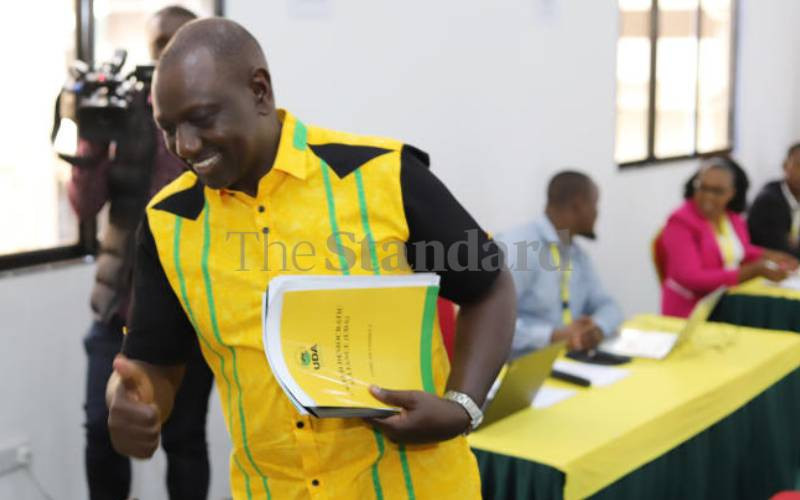×
The Standard e-Paper
Join Thousands Daily

The planned folding up of Kenya Kwanza Alliance-allied parties has made clear President William Ruto's intention to establish total political dominance in the country.
In the unfolding game of numbers, the president is working towards eliminating any formidable challenge to his administration. He has set in motion a strategy that will see his United Democratic Alliance (UDA) attain supremacy that has not been witnessed yet in the multi-party era.